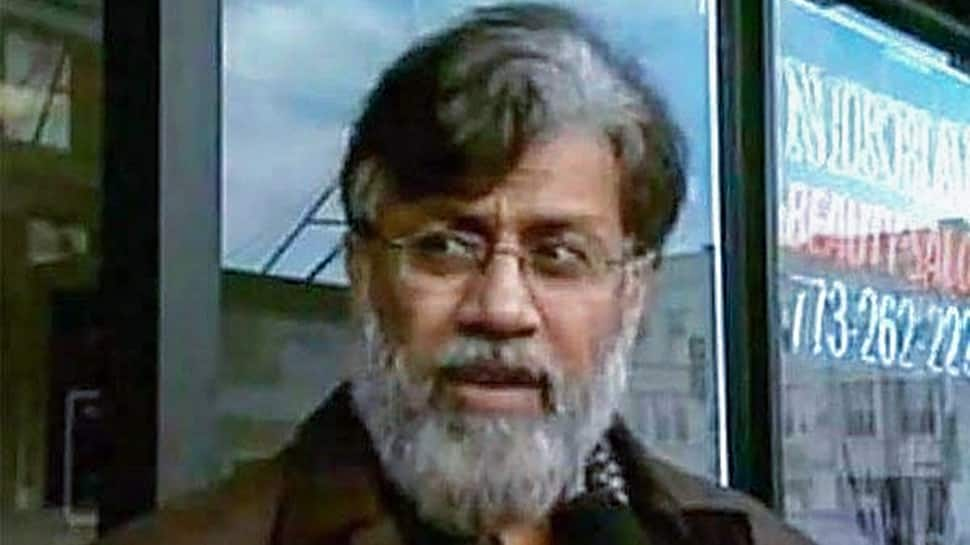[ad_1]
NEW DELHI: In what brings 26/11 terror attack accused Pakistani-origin Canadian businessman Tahawwur Rana closer to extradition to India, a US court has denied the writ of habeas corpus filed by him. The denial has paved the way for US Secretary of State Antony Blinken to issue a certification for him to be extradited to India where he is facing a trial for his alleged involvement in the 2008 Mumbai terror attacks.
“The court has denied Tahawwur Rana’s petition for writ of habeas corpus by a separate order,” read orders by Judge Dale S Fischer, United States District Judge, Central District of California. During the recently concluded monsoon session of the Indian parliament the Home Minister Amit Shah had informed the House that Tahawwur Rana would face the Indian judiciary soon.
Rana has filed an appeal against the order and sought a stay on his extradition to India till the time his appeal in the Ninth Circuit Court is heard. He had filed “writ of habeas corpus” in June this year challenging a court order that acceded to the request of the US government that the 2008 Mumbai terror attacks accused be extradited to India.
The special public prosecutor of the 26/11 case Ujjwal Nikam said that it was a great diplomatic success and a major blow to terrorism. “With extradition almost finalised, we now need to decide which court he will be tried, whether in the NIA court at Delhi or elsewhere, those questions will be decided by the investigating agency,” Said Nikam.
Judge Fischer in his rejection order said that he didn’t find any solid grounds as Rana has only made two basic arguments in the writ. First, he claims that, pursuant to the treaty, he cannot be extradited because India plans to prosecute him for the same acts for which he was charged and acquitted in a United States court. Second, he argues that the government has not established that there is probable cause to believe that Rana committed the Indian offenses for which he is expected to stand trial, the judge said.
“Given that, even if (David) Headley’s testimony were the entire basis for the probable cause finding, it would be sufficient for the purposes of habeas review because it constitutes some competent evidence supporting the finding. For the reasons stated above, Rana’s petition for a writ of habeas corpus is DENIED,” the judge wrote.
Tahawwur Rana was arrested in the US on an extradition request by India for his role in the Mumbai attacks that killed 175 people, including six Americans. Indian authorities allege that Rana conspired with his childhood friend David Coleman Headley to assist the Pakistani terror group Lashkar-e-Taiba in orchestrating the terror attacks. David Headley had pleaded guilty and testified against Rana.
Following Judge Fischer’s order, Patrick Blegen and John D Cline, Rana’s two attorneys filed an appeal to the United States Court of Appeals for the Ninth Circuit from the Order entered on August 10, 2023, for denying his petition for writ of habeas corpus. In a separate appeal, Blegen has filed a petition “for a stay of extradition pending his appeal” to the United States Court of Appeals for the Ninth Circuit from the court’s order denying his petition for a writ of habeas corpus.
“As set forth in the accompanying memorandum, petitioner submits that a stay of extradition pending appeal is appropriate because he has made a strong showing that he is likely to succeed on the merits of his non bis in idem claim; he will suffer irreparable harm if he is extradited, potentially including the death penalty; a stay pending appeal will not substantially injure the government; and the public interest favors a full review of Rana’s non bis claim before he is sent to a country that seeks to execute him,” Rana’s attorney wrote on August 14.
In June, the Biden administration had urged the court to deny the writ of habeas corpus filed by Rana. “The United States respectfully requests that the court deny Rana’s petition for a writ of habeas corpus,” said E Martin Estrada, US attorney for Central District of California, in his petition filed before the US District Court for the Central District of California.
[ad_2]
